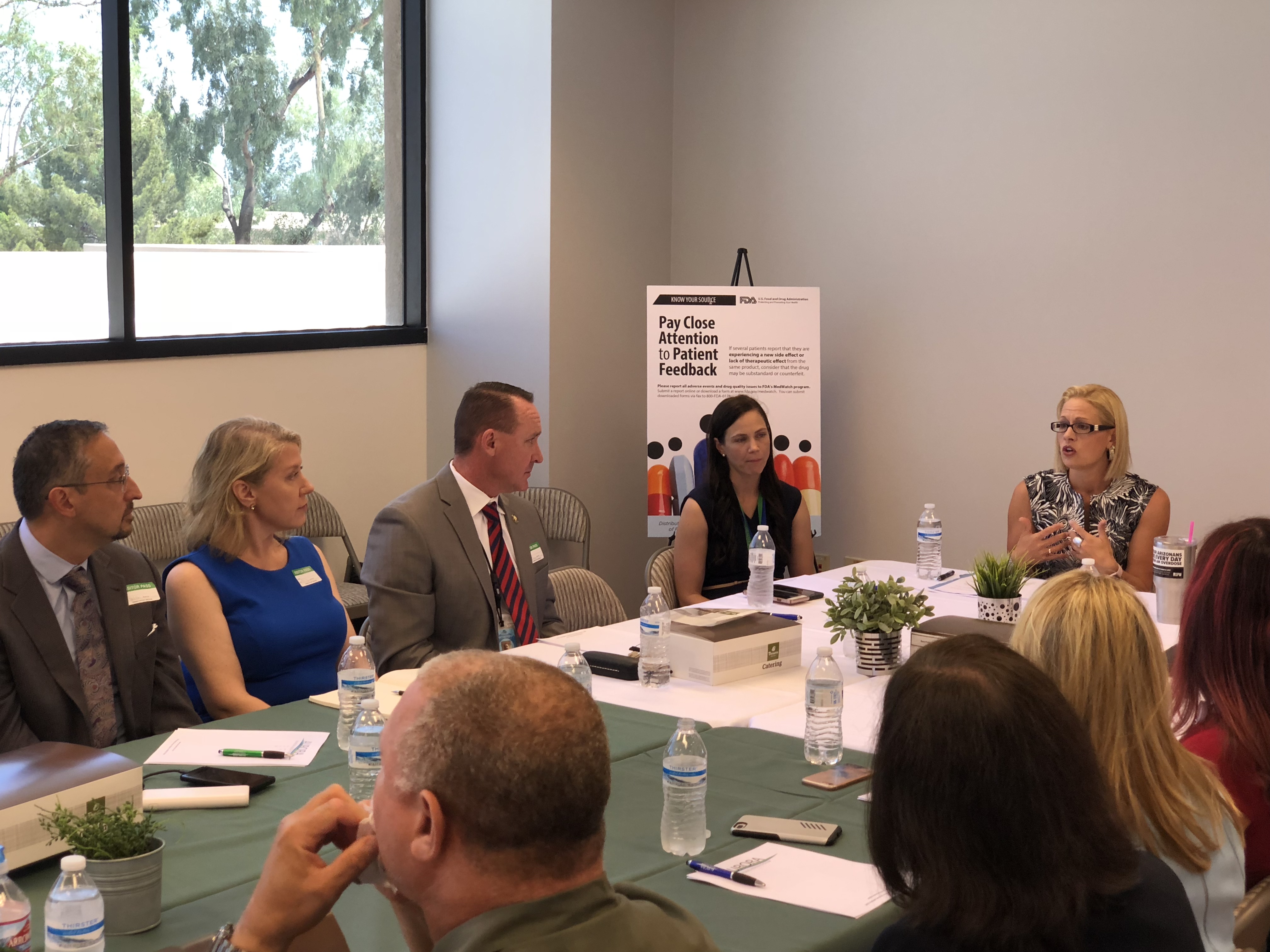Over Half of U.S. States Have Now Seen Fatalities from Counterfeit Drugs Made with Fentanyl

The Partnership for Safe Medicines Releases New Analysis at Roundtable Event and Highlights the Danger of Illegally-Imported Medicines
PHOENIX (August 16, 2018) – During a roundtable discussion focused on the nation’s worsening opioid crisis, advocates for ensuring a safe drug supply shared new data detailing the increasing prevalence of counterfeit medications and the rising number of deaths tied to them.
The Partnership for Safe Medicines (PSM) announced at the event hosted by U.S. Representative Kyrsten Sinema (D-AZ) that counterfeit pills made with illegally-imported fentanyl have now been found in 44 states and, with the recent death of an Idaho man, fatalities tied to counterfeit drugs have now occurred in 26 states.
“The U.S. is experiencing an extraordinary increase in public access to counterfeit drugs. It has escalated to a point that I haven’t seen in the more than thirty years that I’ve studied medicine safety,” said Marv Shepherd, board president of PSM. “People are dying from counterfeits in over half of our states and the problem continues to worsen. Elected officials must do everything within their power to protect patients and health care providers from the dangers inherent in unregulated medicines.”
“As policymakers in Washington and across the country continue to discuss steps toward allowing the importation of drugs from foreign sources, they run the risk of exacerbating the public safety risks that already exist,” said Shepherd.
This concern was echoed by retired Detective Sergeant David Lake, now CEO of the Center on Shadow Economics. “The issue of counterfeit drugs is more complex and extensive than what can be seen on the surface. The constant threat from online sales, illegal pharmacies and street sales is stretching the limited law enforcement resources dedicated to this issue in many states and communities to the breaking point. The complexity of this problem requires greater awareness and heightened support from federal, state and local government and increased coordination with private sector stakeholders,” said Lake.
In the roundtable discussion, Shabbir Safdar, executive director of PSM, shared details of the four new incidences:
- A man has died in Boise, Idaho from a counterfeit drug containing a lethal amount of fentanyl. Until this year, Idaho had never had a documented case of counterfeit medicines but, in July, the Department of Justice announced the indictment of two men selling counterfeit controlled substances through a fraudulent online pharmacy.
- North Carolina experienced its first documented fatality connected with counterfeit drugs when a man, now charged with second degree murder, allegedly sold a pill containing fentanyl to a woman who subsequently died in her car.
- A South Carolina man’s body was discovered by his son, who tried unsuccessfully to wake him after he had taken counterfeit pills laced with fentanyl sold to him by an acquaintance.
- A Colorado woman suffering from pancreatitis died after taking counterfeit pain pills that she believed would help alleviate her symptoms. The incident prompted Grand Junction police to issue a public warning about these pills being in circulation.
At the roundtable, Safdar underscored the need for patients and consumers to be made aware that it is unsafe to purchase medications from anywhere other than a pharmacy licensed in the United States.
“Black market medications from Canada and other countries have shown up in the United States with misleading labeling describing the pills as cancer medications, pain relief drugs and others,” said Safdar. “People may think a Canadian pharmacy on the web is perfectly safe, but they aren’t pharmacies – they often aren’t even Canadian and they’re never safe. It’s not worth risking your life to try to save a few dollars,” he concluded.